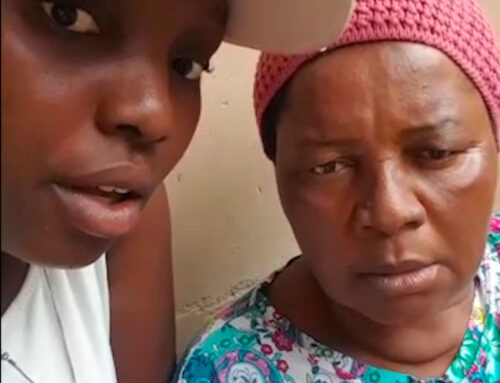How victims of human trafficking can become part of the problem
Nigerian victims of human trafficking for sexual exploitation can inadvertently end up being part of the problem. Social media at home is used by traffickers to entice potential victims to the United Arab Emirates. A far more powerful force is the “pull” effect of the social media feeds of victims themselves.
We are seeing an explosion of digital reach in Nigeria with the expansion of mobile internet access and the reducing cost of both data and smartphones. In the era of the COVID pandemic, traffickers have been turning to social media to entice victims abroad.
As part of our efforts to track traffickers known to Send Them Home, we run several fake public Facebook accounts posing as young Nigerian women. We friend Nigerian traffickers connected to the UAE and track their movements. Initially, after sending out a few friend requests we get inundated ourselves. Nigerian, Indian and men from the Gulf then start calling us on Facebook Messenger and sending through unsolicited images of their privates. There’s a lot of pressure on young Nigerian women in the digital arena.

In the same way that the traffickers network through churches and families, aunties, friends and pastors, social media allows them to expand their network without limitation. Making friends, engaging in conversation, cultivating and then exploiting relationships and then posting enticing adverts for work abroad. In the light of the “push” pressure, COVID has added to disadvantaged and poor Nigerian families, it’s not hard to see why potential victims might suspend disbelieve at such enticing offers.
However, there is one unintended channel of recruitment that is far more sinister than recruitment in person or digitally. That is the status updates of victims themselves. Trapped in a world of shame and fear, victims populate their social timelines and WhatsApp status updates with images and video of success, glamour, camaraderie and abundance. Evidence for the audience back home that says all that glitters is indeed gold.
It’s a curious phenomenon, but victims are eager to reassure friends & family back home, and maybe even themselves, that everything is OK. For some, there is a hope that someday when they have paid off their bonded debt of $10,000 that they will actually live the dream they were promised. They are reflecting the opulence and freedom they see around them in the UAE whilst enduring a miserable existence out of sight.
For the resilient victim who pays off her debt for travel, agents and visa fees and possibly graduates to being a senior girl (one of the madams’ trusted victims who keep an eye on newer victims), they may go on to running their own satellite apartment. Their social media stories become more glamorous, reflecting their success to their families back home, all made off the abuse and exploitation of their fellow victims.

For those victims that float to the top, the great social media charade will include status updates involving a fabulous display of gold jewellery, parties surrounded by the now-traffickers family, all curated for friends back home, a story of success abroad, The victim-turned-madam, adorned in gaudy designer gold jewellery, bought by victims upon payment of their bonded debt.
Franz Celestin, IOM Chief of Mission said recently, referring to Nigerian migrants returning from Libya, “One of the strongest push for migration is aspiration and not just poverty, conflict or disasters” The social media timelines of victims themselves plays right into this.






